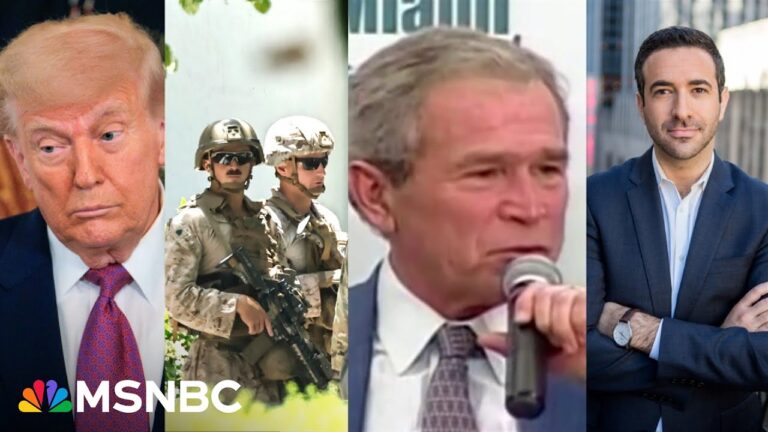Video at the bottom!
The video discusses the complex and contentious issue of deploying active-duty troops for law enforcement within the United States. History shows that the President cannot simply send troops for this purpose without specific circumstances, such as declaring an insurrection or being requested by a state’s governor. The narrative highlights a deep-seated understanding among military leaders that active-duty forces are trained for combat, not policing, and their deployment for domestic law enforcement is generally deemed inappropriate and illegal.
Veteran Paul Rieckhoff emphasizes a bipartisan consensus among military and political leaders regarding the limitations of troop deployment. He argues that what has been happening under the current administration represents a break from established norms and poses significant risks. Rieckhoff articulates his belief that recent actions threaten the trust between the military and the American public and undermine the principles that protect military engagement in domestic affairs.
Rieckhoff recalls his own experience as a National Guardsman deployed in America post-9/11, contrasting it with the current situation. He underscores that recent justifications for deploying active duty forces lack transparent communication with the public, leaving many critical questions about command, mission clarity, and accountability unanswered. He suggests that effective leadership and open dialogue have been sorely lacking.
The conversation also delves into the potential repercussions for the military personnel involved. Rieckhoff warns that deploying troops in chaotic domestic situations without clear missions or rules of engagement creates dangerous conditions. Unlike deployed soldiers overseas, where missions are defined, the unclear objectives in domestic operations may compromise the safety and effectiveness of the armed forces while damaging public perception.
He stresses the importance of maintaining trust and respect for military members, regardless of their unit or duty. Rieckhoff indicates that the current politicization of the military could endanger its reputation, which has been carefully built over decades since the Vietnam War. The urgent need for clear, consistent communication from leadership is emphasized as essential to maintaining both safety and democratic integrity in the face of rising tensions. This situation exemplifies the dangerous divide between military and civilian spheres in contemporary America, potentially leading to grave consequences if not addressed properly.


